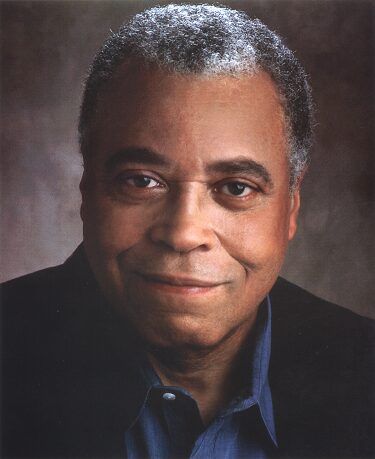James Earl Jones
Class of 1997
- Actor

It is the road that is important, not so much the destination.
James Earl Jones was born in Arkabutla, Mississippi, in 1931 and was raised by his grandparents, whom he called Mama and Papa. When Jones was five, his grandfather moved the family to a farm in Michigan, where they spent the first winter in a converted chicken coop. The move was traumatic for Jones, who became a stutterer at home and unable to speak at all in front of strangers.
That condition did not change until Jones was in high school and an understanding teacher had him read a poem that he had written in front of class. The rhythm of the stanzas made it easier for him to speak and from that time on, speaking was no longer a problem for him. By his senior year, Jones was a class officer, the editor of the yearbook, and the school's champion public speaker. He won a scholarship to the University of Michigan, where he began in 1949 as a pre-med student. When he started acting in school plays, he changed his major to drama.
Jones graduated, did a tour of duty with the U.S. Army, and then began his acting career. In the 1950s, he went to New York to study at the American Theatre Wing. In the early 1960s, he starred in The Blacks, a play that earned him an Obie award as the best actor in off-Broadway theater. In 1964, he made his movie debut in Dr. Strangelove. Next, Jones starred in The Great White Hope, both on stage and film. He won a Tony for the 1967 performance and was nominated for an Oscar for the 1970 movie version.
One of Jones's earliest movie successes was as the voice of Darth Vader in the Star Wars trilogy. Since then, he has starred in many movies, including Field of Dreams, The Hunt for Red October, Sneakers, Somersby, The Sandlot, and Cry, the Beloved Country. He also won two Emmys, one for Gabriel's Fire and one for the miniseries, Heat Wave.
Jones's deep, resonant voice has also been in demand. He played Mufasa in Disney's The Lion King, one of the most successful animated movies of all time. He has also been the announcer of CNN and has narrated a number of documentaries. The Horatio Alger Association is grateful for Jones's assistance as the narrator of several of the Association's public service announcements.
Asked his advice for young people, Jones declined to present himself as one who has all the answers. "I believe it is the search and the journey that are important," he says, "not so much the destination."
